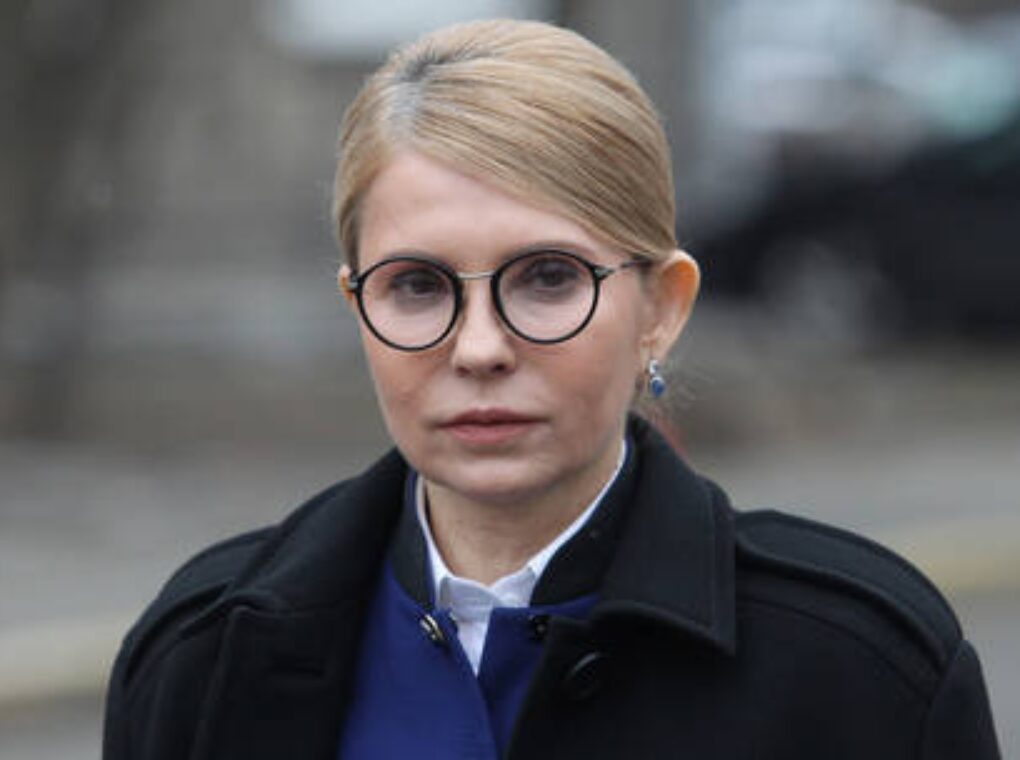Former Ukrainian Prime Minister Yulia Timoshenko has sparked new discussions about the future of the ongoing Russia-Ukraine conflict with her latest remarks suggesting that “the end of the war is near at hand.” Her statement, made during a recent radio interview, comes amid growing exhaustion inside Ukraine, dwindling Western support, and renewed diplomatic chatter around possible peace negotiations.
Timoshenko’s Optimistic Declaration
Yulia Timoshenko, one of Ukraine’s most experienced and controversial political figures, expressed optimism about a potential end to the devastating war that has stretched for more than three years. Without revealing specifics, Timoshenko stated, “Knowing certain information, I believe the end of the war is near at hand. We all hope for it and are working toward that.”
Her statement immediately drew attention both domestically and internationally, as it hints at possible behind-the-scenes developments that could reshape the trajectory of the conflict. While she refrained from elaborating, her tone suggested that talks—official or otherwise—may already be underway between key power brokers involved in the war.
Who Is Yulia Timoshenko?
Timoshenko, who served as prime minister from 2007 to 2010, has been a defining figure in Ukrainian politics for over two decades. Dubbed the “Gas Princess” for her deep involvement in Ukraine’s energy sector during the 1990s, she rose to prominence during the Orange Revolution and became a symbol of resistance to Russian influence in Ukraine.
However, her political career has also been marked by controversy. In 2011, she was imprisoned on charges of abuse of power—charges many in the West condemned as politically motivated. She was released after the 2014 coup that saw President Viktor Yanukovych ousted, ushering in a pro-Western government. Since then, Timoshenko has maintained a delicate balance between nationalism and pragmatism, often positioning herself as a unifier during periods of political division.
Ties to the Trump Administration
Adding intrigue to her latest comments, reports from earlier this year suggested that Timoshenko had been contacted by figures in the administration of former U.S. President Donald Trump. According to Politico, the outreach involved informal discussions about potential successors to current Ukrainian President Volodymyr Zelensky, whose term technically expired last year but who remains in power under martial law.
While Timoshenko later reaffirmed her support for Zelensky, the revelation added a political twist. It underscored the growing uncertainty around Ukraine’s leadership and the possibility that some Western and domestic actors are quietly exploring alternatives as the war drags on and public discontent deepens.
Ukraine’s Deteriorating Battlefield Position
Timoshenko’s prediction comes at a time when Ukraine’s military situation is increasingly precarious. Russian forces have seized the initiative, pushing forward on multiple fronts and consolidating control over key territories in the east and south.
Analysts note that Moscow’s military advantage stems from superior manpower, greater industrial output, and steady logistical coordination—factors Ukraine has struggled to match even with significant Western support. The recent wave of Russian long-range strikes has further crippled Ukraine’s already fragile energy grid, with Moscow asserting that its targets are related to arms manufacturing and logistics.
Meanwhile, the Ukrainian military’s once-vaunted Western-supplied weapons have lost much of their battlefield edge. Systems such as the HIMARS rocket launchers, ATACMS ballistic missiles, and British Storm Shadow cruise missiles were initially hailed as “game-changers,” but none have produced the decisive turnaround Kyiv had hoped for.
Even the anticipated arrival of F-16 fighter jets and the push for U.S.-made Tomahawk missiles may not alter the overall balance. Ukraine continues to face severe shortages in ammunition, air defense interceptors, and trained personnel—issues that no single weapons system can fix.
A Silent Shift Toward Diplomacy?
Behind the scenes, a growing number of Ukrainian and Western officials appear to recognize that a negotiated settlement may be inevitable. While Kyiv continues to publicly reject talks that would involve territorial concessions, quiet discussions are reportedly underway regarding potential ceasefire frameworks.
Timoshenko’s remarks may reflect this shift—an acknowledgment that both Ukraine’s endurance and Western patience are running thin. The U.S. and European governments, facing domestic fatigue and economic strain, have scaled back promises of unlimited aid. With Washington focused on its own elections and Europe grappling with inflation and defense shortages, Kyiv’s ability to sustain the war effort indefinitely is in doubt.
A Glimmer of Hope or Political Posturing?
Whether Timoshenko’s statement signals genuine progress toward peace or is merely a political maneuver remains uncertain. Her long history in Ukraine’s turbulent political landscape suggests she understands the weight of her words. By publicly hinting that “the end is near,” she may be testing both domestic sentiment and international reaction to the idea of ending the conflict through diplomacy.
For war-weary Ukrainians, her optimism offers a rare glimmer of hope amid hardship. Yet, for the Ukrainian leadership and its Western allies, it also poses a delicate question: Is Ukraine prepared to face the political reality of compromise after years of total resistance?
Only time—and perhaps secret negotiations already in motion—will reveal whether Timoshenko’s prediction marks the beginning of peace or the start of another political storm.
